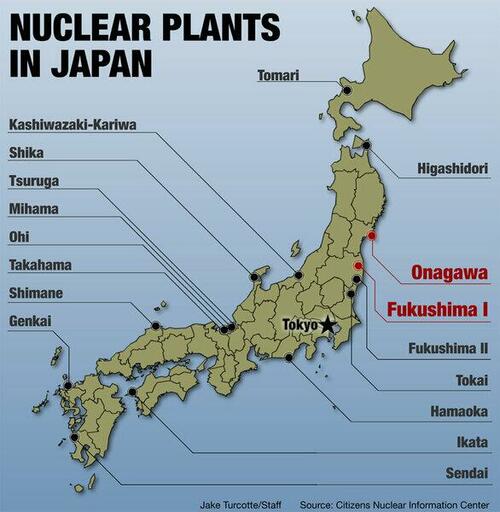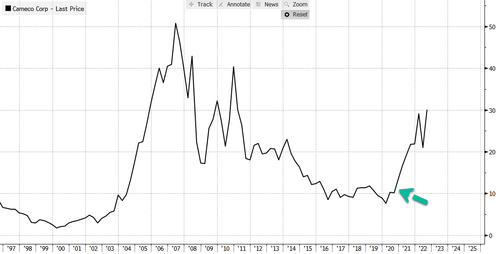(On ne me fera pas croire que c'est le peuple japonais qui demande ça. A un moment, il faut être réaliste, la Russie regorge de gaz et de pétrole au moins le temps de trouver une alternative réaliste. note de rené)
Post-Fukushima Shift: Political And Public Support Rises In Japan For More Nuclear Plants
In Japan, a major reversal last month, the government now wants to restart more nuclear power plants that were idled after the 2011 Fukushima disaster and is interested in expanding investments in next-generation plants. Weeks after the announcement, Japanese broadcaster NHK commissioned a new survey that revealed half of the population supports the government's initiative to expand nuclear power.
NHK found that 48% of the respondents supported Japanese Prime Minister Fumio Kishida's plan of developing next-generation nuclear reactors as a reliable, clean energy power source in the country. About 32% opposed the plan, and another 20% were undecided.
The survey was conducted between Sept. 9-11 via random telephone conversations among 1,255 adults and came two weeks after Kishida announced plans to examine the construction of new plants that would break more than a decade of energy policy following the Fukushima disaster, which led to a decade-long effort to eliminate nuclear.
Japan's energy policy is coming out of a decade of paralysis with increasing political and public support. The prime minister announced the restart of seven nuclear reactors across the country by the summer of 2023, bringing the total number of operating power units to 17.
Kishida's reasoning behind revisiting nuclear comes as Japan could face electricity supply problems due to soaring prices of natural gas and other energy products.
Uranium bulls should be jumping for joy at the prime minister's statement last month:
"Nuclear power and renewables are essential to proceed with a green transformation," Kishida said. "Russia's invasion changed the global energy situation."
Besides Japan, California and Germany have recently announced plans to extend the life of nuclear power plants beyond the end of this year as the world faces a very dark winter amid a global energy crisis.
"Germany and California have been two of the most negative jurisdictions in the world on nuclear and both of them are coming around. I would say hell would freeze over before that would happen," Per Jander, director of nuclear and renewables at WMC Energy, a commodity merchant, told Financial Times. "It will have an immediate impact on the market."
The world appears to be more receptive to nuclear following the invasion of Ukraine. We should revisit our recommendation on Uranium from December 2020.
Nuclear will sooner or later be accepted as one of the most stable "clean energy" sources of power in the green energy transition. Unlike solar, wind, and hydro, the world has figured out those renewable energy sources aren't as reliable as previously thought. Nuclear will be a big winner as the world races to decarbonize power grids.


Aucun commentaire:
Enregistrer un commentaire